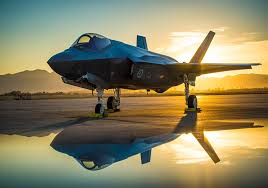National Times Bureau, May 17, 2025: Canada’s multi-billion-dollar deal to purchase 88 F-35A fighter jets from Lockheed Martin comes with a controversial twist—spare parts for the aircraft will remain the property of the United States until they are physically installed on Canadian planes. This clause is not unique to Canada; it’s part of the F-35 program’s global logistics model. But in Canada’s case, it has sparked concerns over military autonomy and operational flexibility.
The arrangement means spare parts are pooled and managed globally by the U.S. Department of Defense, Lockheed Martin, and Pratt & Whitney. More than 50 storage hubs worldwide, including some in Canada, hold these parts. However, until installation, legal ownership remains with the U.S. Department of Defense. Critics argue this limits Canada’s control, especially in high-stakes scenarios like geopolitical tensions or trade disputes.
Prime Minister Mark Carney has asked Defence Minister Bill Blair to review the deal, weighing its strategic value and national interest. Blair’s review may include consideration of European alternatives like the Eurofighter Typhoon or Sweden’s Saab Gripen. Some officials are pushing for a domestic assembly line to reduce foreign dependency and boost Canada’s aerospace industry.
Further complicating the issue, a 2023 U.S. Government Accountability Office audit revealed that over 1 million spare F-35 parts—worth more than $85 million—went missing due to weak tracking systems. This has added to doubts about the program’s reliability and oversight.
Despite the criticism, Canada’s participation in the F-35 program has economic upsides. Winnipeg’s Magellan Aerospace, for instance, is manufacturing horizontal tail assemblies for the jets. These contracts are expected to inject significant revenue into the Canadian defense sector over time.
Yet, the bigger debate continues: should a sovereign country invest in a military asset whose logistics chain it doesn’t control? As Ottawa grapples with balancing cost, capability, and sovereignty, the F-35 deal may become a defining test of Canada’s defense policy in a rapidly shifting global landscape.
F-35 Controversy: Shared Parts, Shared Power?

